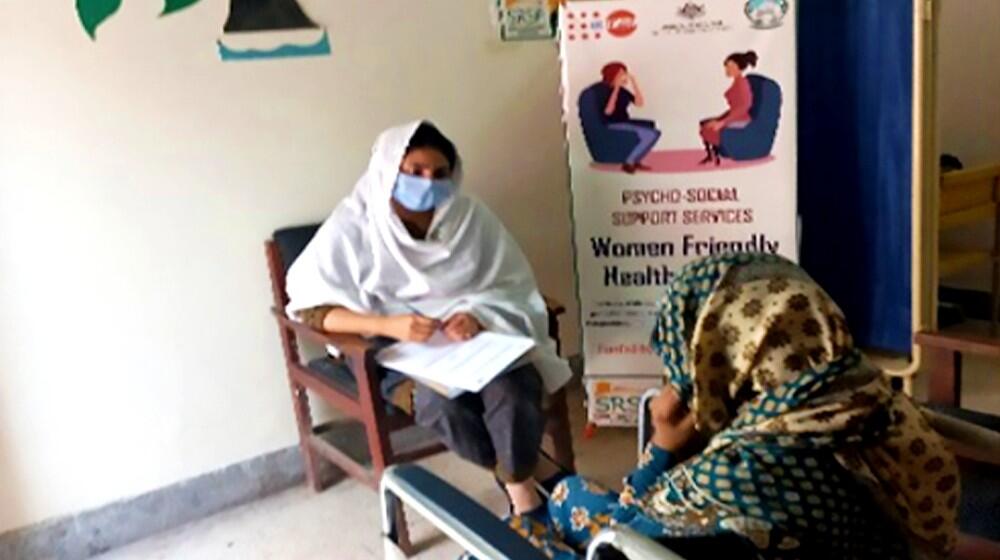Haseena*, 35, from Phandu, Peshawar is a woman living with a disability – she suffered polio at a young age, and her legs became paralyzed. However, Haseena has remained resilient; she carries out her daily chores on her knees and hands.
“My parents wanted to marry me off as soon as I turned 16. They did not want to keep having a daughter with a disability around them. A 50-year-old man with four children offered to marry me after the death of his wife. I refused that marriage proposal,” explains Haseena. “I had gone through my secondary education and had passed my exams, and I wanted to go further with my studies to gain economic independence.”
However, her parents insisted on having Hassena married off. “I lost all hope of accessing higher education,” she says. Haseena explains that her new husband was initially good towards her but kept changing as time passed. “He started getting frustrated with my disability, and he started abusing me physically and emotionally.”
Domestic violence is glaring in many communities in Pakistan. However, it is often ignored because it has become a normal activity in a patriarchal society, and it mostly happens behind closed doors.
The children also started suffering as economic strains put her into further vulnerabilities, and her health deteriorated as she was not getting enough food, according to Haseena. She explains that she was further devastated when a stroke hit her husband, and his eldest son took him away and left Haseena with three children alone and helpless.
“I was broken, and I was now completely dependent on my brother who took me to his own house as my father had since passed on,” she says. Haseena’s brother earns a daily wage, and he does not earn enough to look after a big family, so the struggle continued.
Regretting about not pursuing her higher education pushed Haseena into depression. She thought that there was no way she was going to get economic independence.
Meanwhile, a social mobilization team from the Sarhad Rural Support Programme (SRSP) had interacted with Haseena during awareness sessions. She was oriented about the Women Friendly Health Spaces (WFHS) services being provided by psychologists.
Haseena accessed the WFHS and attended sessions on GBV prevention and services; she learnt about mental health importance. “I started attending counselling sessions with psychologists. I was diagnosed with post-traumatic disorder and depression. I got motivated, and my eyes were opened to my hidden talent of art and craft,” explains Haseena.
UNFPA supports the WFHS with funding from the Australian Government’s Department of Foreign Affairs and Trade (DFAT).
She started perfecting her talents, stitching different materials, and earning money from her products. Haseena can now make enough money to take care of her family and live an economically independent life.
"My parents should never have forced me into a marriage, but that’s all water under the bridge,” says Haseena.
*Name changed for privacy and protection


